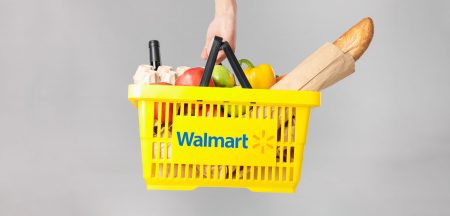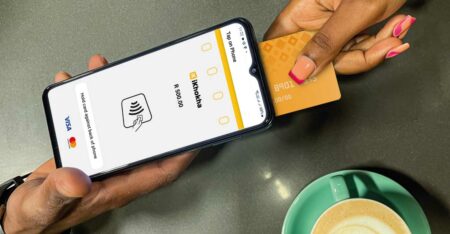
A mobile payments proof of concept focused on townships around Durban in KwaZulu-Natal will be expanded to sites around the country, financial technology start-up iKhokha has said.
iKhokha, which develops an m-payments solution that allows small businesses to accept card payments on their smartphones without the need for an expensive, bank-branded point-of-sale card terminal, believes there is a big opportunity in underserviced areas where small merchants rely almost exclusively on cash payments.
The company, which has run proof-of-concept pilots in KwaMashu and Umlazi outside Durban in partnership with Mastercard, said the solution is gaining traction. But a significant investment in education and even business mentoring is key to success, said iKhokha co-founder and marketing director Ramsay Daly.
“We have done workshops in some of the informal areas. These workshops are quite key,” Daly said. Merchants and other community members respond particularly well to education around starting a business and the principles of running it sustainably.
“We take a percentage of these businesses’ revenue, so we almost see ourselves as a stakeholder in their companies,” Daly said. “The more information we can give them, the better for us in the long term. These guys don’t have mentorship, and it’s tough for them to access capital and to know what to do.”
The workshops also provide merchants with help on dealing with cash management and other business basics. “There is a massive addressable market in the informal space, but it’s a long-term play for us,” Daly said.
He said the plan is to replicate what has worked in KwaMashu and Umlazi nationally. “We’re still working out the details of how to do it, but this is an underserviced market and so there’s a big opportunity.”
iKhokha co-founder and MD Matt Putman said many South Africans already have payment cards. “The banks and even government through the Sassa card initiative (social grants) have got a debit card into the hands of the vast majority of South Africans. But they can’t use those cards in the townships, so they tend to withdraw it as cash, creating a big risk of them being robbed,” he said.
“There is a growing desire among especially the younger township audience to be able to pay with card. Is it a model that can work in the townships? The results so far have been very positive.”
Daly said townships have, until now, been cash economies, but only because there were so few places people could use cards to pay for goods and services.
The high cost and onerous requirements of getting a card terminal from a bank have put off many small merchants from accepting card payments. “Cost and distrust are both high, and they don’t just want a device dropped on their doorstep.”
Many of the businesses that have begun offering m-payments using an iKhokha terminal have seen their turnover increase by between 20% and 50%, Putman said.
iKhokha, which won best enterprise app in MTN Business’s App of the Year awards in 2016, came to market at the end of 2014 in what Putman called a “hybrid model” with banking group Absa. Initial uptake was, however, slow.

“We had too optimistic a view that we could take what worked in the US with [mobile payments company] Square. But there were a lot of barriers and friction in the South African space,” Putman said.
Financial Intelligent Centre Act (Fica) compliance was one issue — the red tape made it difficult to roll out the solution quickly, he said. A second was merchants’ “fear of e-commerce, of going online and uploading documents and doing online payments”. Lastly, fulfilment — getting m-payments terminals in the hands of merchants — was a challenge.
“We went through a lot of heavy learnings — how stay within ‘know you customer’ [regulations] while trying and remove friction from the process,” Putman said.
To overcome this, iKhokha hired a telephonic support team to walk people through the onboarding process. It also sent more people into the field. “A lot of small and medium enterprises want to see a person first [before signing up]. We needed physical teams on the ground to educate people around the technology.”
In an effort to smooth the customer acquisition process, and make it easier for prospective customers to get up and running with the technology quickly, iKhokha partnered with Massmart-owned retailer Game to sell the solution.
“An SME can now walk into a Game store with cash, they can do the ‘know your customer’ process in-store, and leave within an hour or two after having touched and played with the physical device.”
As the base grew — mainly in Gauteng, KwaZulu-Natal and the Western Cape — iKhokha realised there was an opportunity facilitate more than simple physical card payments. “We have a bidirectional app that can be used to push additional products to our merchants, which we have started to do.”
The company launched a product to try and address a big pain point for SMEs: difficulty in getting access to capital, especially in the form of traditional loans, at reasonable rates of interest.
Because iKhokha has insights into businesses’ cash flows — or at least into their card-based sales — it has historical data that it can use to calculate how much it could lend to clients.
“If they processed R10 000 on their iKhokha machine, there’s a good chance they will continue to do this on a consistent basis,” explained Putman. “We can work out what they can pay back sustainably.”
Instead of debiting their accounts, though, iKhokha takes a bigger percentage of monthly revenue. “It’s like a raising fee upfront, but it’s a fixed capped fee, so there’s no compound interest,” he said.
Merchants service the debt based on how the business is doing. “If they are having a good month, they pay it back quicker.”
The start-up partnered with Cape Town-based Retail Capital, a company founded in 2011 to provide businesses with an alternative funding solution to traditional small business loans, to offer the solution.
Each month, iKhokha merchants get told they qualify for a cash advance, and how much — they can then decide what to take, if anything, and choose how long to pay it back.
“We have advanced several million rand in the first six months of the project. Once merchants have paid off their first advance, 70% have used it again. Bad debts are basically non-existent, too — about 1%. The more payments they take through cards, the quicker they pay back the loan, encouraging them to use the iKhokha terminal,” Putman said.
“We want to position [iKhokha] as the preferred provider of financial services to SMEs. With the platform we have built, there’s a bunch of other financial products we plan to bring to market this year to broaden our relevance to our base,” he added.
Today, iKhokha has about 5 000 merchants generating between R30m and R40m/month on average in transactions. It is adding about 400 new businesses a month, which it expects will accelerate in 2017.
The start-up has raised a number of rounds of funding, all through Capital Eye Investments. — © 2017 NewsCentral Media




